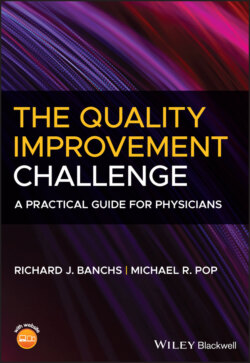Читать книгу The Quality Improvement Challenge - Richard J. Banchs - Страница 48
THE PROJECT CHARTER What Is a Project Charter?
ОглавлениеAfter the problem has been clearly defined with a Problem Statement, it is time to agree on the nature and specifics of the project. The Project Charter is the most important document of your project.
The Project Charter is a document that serves to gain agreement between the Primary Sponsor and the QI team as to the nature, scope, goals, and timeline of the project. The Project Charter concisely delineates the who, what, when, where, how, and why of the project.
The Project Charter is key to helping the QI team achieve the goal of the project because
It helps everyone understand the aim, scope, and goals of the project.
It serves to gain agreement between all parties.
It authorizes the project’s initiation and use of resources by the QI team.
The Project Charter serves as an informal contract between thePrimary Sponsor and the project team as to the scope, roles, responsibilities, and nature of the project. An initial draft of the Project Charter must be complete at the beginning of the project. It must also specify who the Project Sponsor, physician sponsors and project manager / leader are. Once the team is formed, the Project Charter can include the project team members, team leader, and key stakeholders when they become known.
The Project Charter can be referred to throughout the project’s life cycle when questions arise regarding expected project performance, deliverables, and timelines. It is a living document that should be updated throughout the project as new information becomes available.
A Project Charter is not a project management plan. It is not a comprehensive document detailing all the steps and actions necessary to complete the project. Instead, the Project Charter is the compass that sets the direction for the QI team, clearly outlining the participants, scope, metrics, and goals of the project.
Quotable quotes: “To solve a problem or to reach a goal, you don’t need to know all the answers in advance. But you must have a clear idea of the problem and the goal you want to reach.” W. Clement Stone
